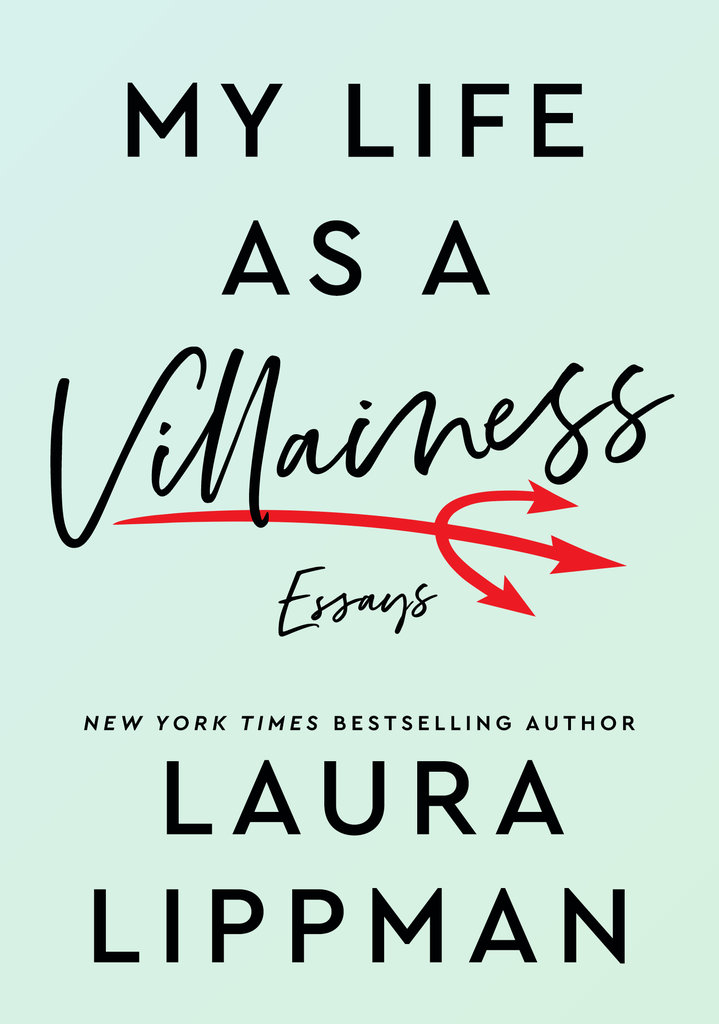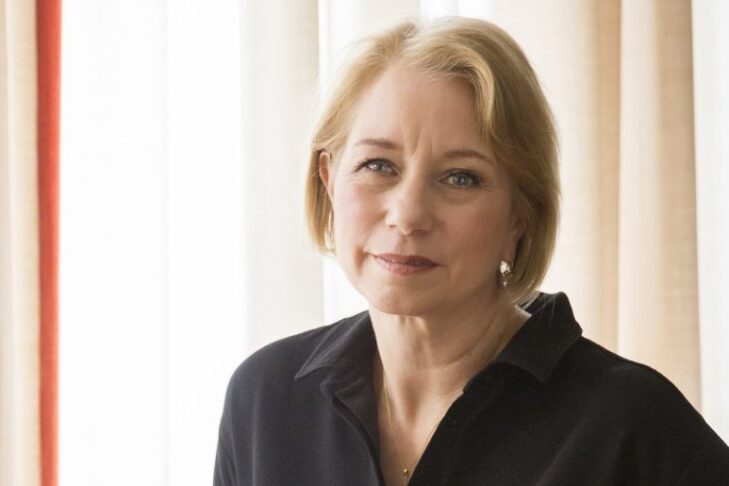Laura Lippman was a journalist for over two decades when she switched to writing mysteries full-time. The best-selling author and Baltimore native, who still lives in the city, decided to try her hand at personal essay writing. In May 2019, just in time for Mother’s Day, Longreads published her essay “Game of Crones.” Much to Lippman’s surprise, the essay drew in thousands of readers. The most she dared to hope was that the essay about older motherhood would be entertaining. Instead, as Lippman writes, “I was reminded that the more specific one is about one’s life, the more universal it can seem.”
“Game of Crones” is among the wonderful essays in Lippman’s collection, “My Life as a Villainess.” As Lippman describes it, she writes what some might consider “subversive” sentences for a 60-year-old woman. They include: “They totally want to have sex with me. I’m gorgeous. I look great.” She also adds a quote from the poet Muriel Rukeyser into the mix—“What would happen if a woman told the truth about her life? The world would split open.”
Lippman’s essays split open the world in the best possible ways. She empowers older women and embraces the joys of older motherhood. “Since I told the truth about my life,” she said, “I feel more comfortable than ever.”
Lippman will be appearing in the Jewish Women’s Archive Quarantine(ish) Book Talks on Thursday, Sept. 10, at 8 p.m. (sign up here). Lippman, who is not Jewish, recently spoke with JewishBoston about bringing up her daughter Jewish, celebrating the High Holidays and her reluctant atheism.
In your introduction to the book, you write that you now have the confidence and self-esteem to tell the worst stories about yourself. What changed, and how does the essay form support you to do that?
The primary thing that changed was I realized a couple of years ago that perfection is pretty toxic. I’m also the mother to a young child and don’t want her picking up on this perfectionist vibe. One of the most constructive things I can do as a parent is readily and almost happily admit when I am wrong. Whether I’m wrong about a simple error in fact or a big mistake, I try to model how one can graciously be wrong and openly talk about my mistakes.
You wrote: “I have decided I like the way I look, and I’m the expert. Who has spent more time looking at me than I have?” How did this point of view evolve?
It evolved very slowly. Regrets are not very helpful. Dwelling on things is not a constructive way to spend time and energy. If I could change anything, and I recognize I cannot, I would have adopted that mindset decades ago. It was a long haul for me, and it can be a long road for many women. I still ask myself, is my fitness regimen a socially acceptable way to fight with my body? Is it silly to work out with a trainer, own a Peloton bike or log steps? Is what I’m doing a bit extreme?
I knew I was done with all of this when I received an email from WW—Wellness that Works. It’s Weight Watchers’ new name. WW doesn’t care about my health or fitness. They just care about money. There is so much money to be made from people being unhappy. As I try to make clear in my essay “The Whole 60,” you spend your entire life obsessing about diet until you’ve completely broken down your own connection with your body. You don’t know what hunger is or what you desire. I eat when I’m hungry, and I eat what I want to eat. That’s how I live.
What does happiness look like? So many people, despite claims to the contrary, are terrified of being happy. In this constant cycle of self-improvement, people feel more comfortable being unhappy. Happiness is an enlightened state they reach for their entire lives.

You became a mother at the age of 50, and when your daughter was 10 days old, someone asked if you were her grandmother. What are some of the joys of older motherhood?
One of the joys is that I’m relaxed about the whole enterprise. However, what I find amazing about parenthood is how many people want to tell you about the things that are going to suck. Before the baby comes, they’ll tell you how much sleep deprivation sucks. I cannot say something on social media about my kid, who is now 10, without someone telling me how difficult my life will be when she’s a teenager. I don’t understand the psychology of people who tell you an inevitable passage is going to be awful. If I don’t have a question mark at the end of what I’ve said, don’t offer me unsolicited advice. I hate it. Parenthood involves so much unsolicited advice. As an older mom, I ignore it all.
You’re not Jewish, yet your husband, David Simon, and your daughter are. Your daughter was even immersed in a mikveh as a baby. How else do you engage with Judaism?
I like bringing up my daughter Jewish. I like it very much. Whatever religion you choose to raise your kid, just choose one. Religion is not a cultural buffet where you just pick the fun stuff and walk away from the difficult stuff. There is no cherry-picking. Raising my kid as a Jew means she observes Yom Kippur and there is no Christmas tree. The synagogue my husband and daughter attend is outstanding.
David likes to say that the synagogue he often fails to attend has to be Conservative. The rabbi is wonderful and has cultivated a relationship with the neighborhood. This particular synagogue was one of the original Jewish synagogues in Baltimore. It’s very progressive, and I like the parents I know from my daughter’s Hebrew school. I’m also very aware that with a name like Lippmann, and my family history, I come in for a lot of antisemitic backlash.
I make my own matzoh for Passover, and my family loves charoset all year round. I learned how to make brisket and eventually want to make my own matzoh ball soup. The Jewish holidays are very family-centric and have beautiful traditions. We have these multi-generational gatherings in my husband’s family. I didn’t have anything like that in my past. My family is not religious, and I stopped going to church when I was 12. Kids like a structure that is about principles and morality. It’s useful when you’re a kid to have someone or something, which provides you with a sense of identity in a group that has been marginalized.
I engage with cultural Judaism because I have a daughter in Hebrew school who will have a bat mitzvah. I’ve had to create my own way of being the mother and the spouse of Jews when I am not Jewish. I don’t fast on Yom Kippur, but I create an environment that is supportive of people in my household doing that.
I am a reluctant atheist who would love to be wrong about atheism. I feel more judged about that than anything else in the book. Atheism is lonely. By definition, it does not involve congregating or congregations. The last thing I ever wanted to be was an atheist. It’s a big loss for me to realize that’s what I am.
How will you celebrate the High Holidays this year?
The High Holidays will be different in this pandemic. But we’ll celebrate them so they mean something to our daughter. Per my brother-in-law’s advice, an infectious disease expert, we’ll bring Rosh Hashanah to my mother-in-law, who is in her 90s. I may attempt to make her roasted potatoes recipe. Although she doesn’t leave her apartment, she would be devastated by the lack of companionship over the holidays. People within the family who have agreed to live a certain way will visit her with masks.
This interview has been edited and condensed.



